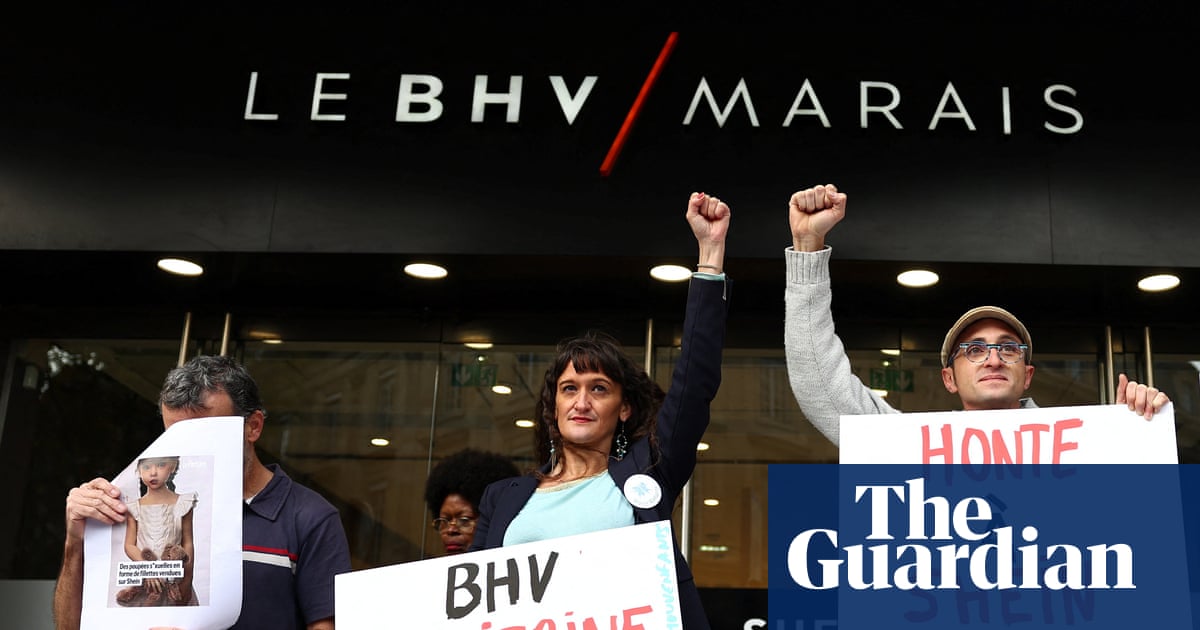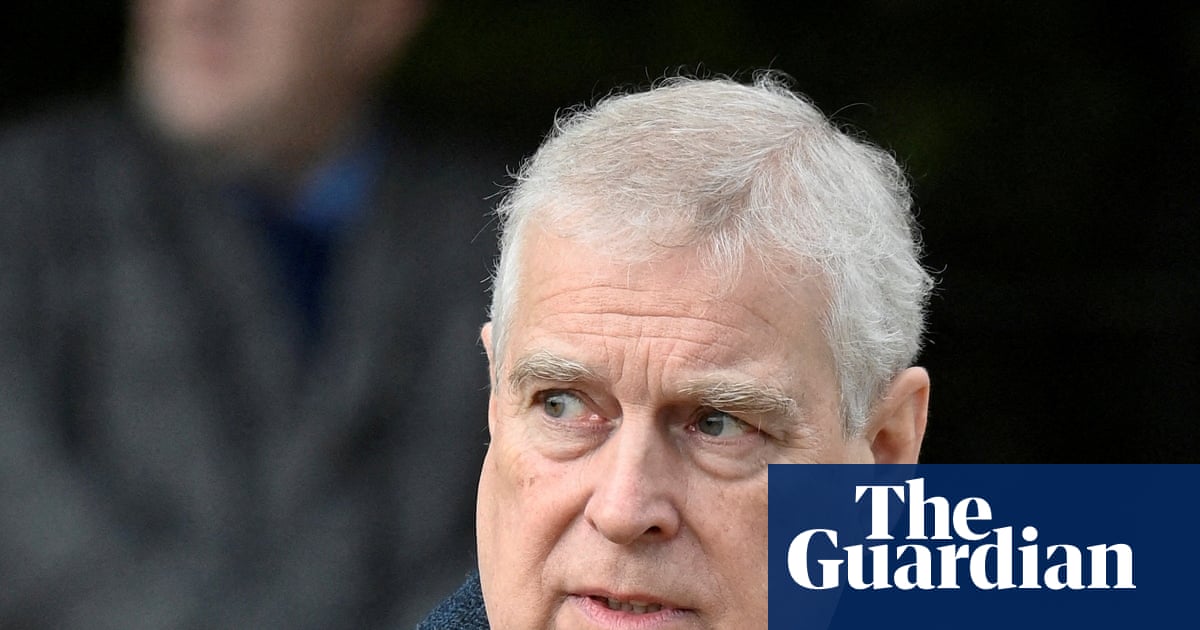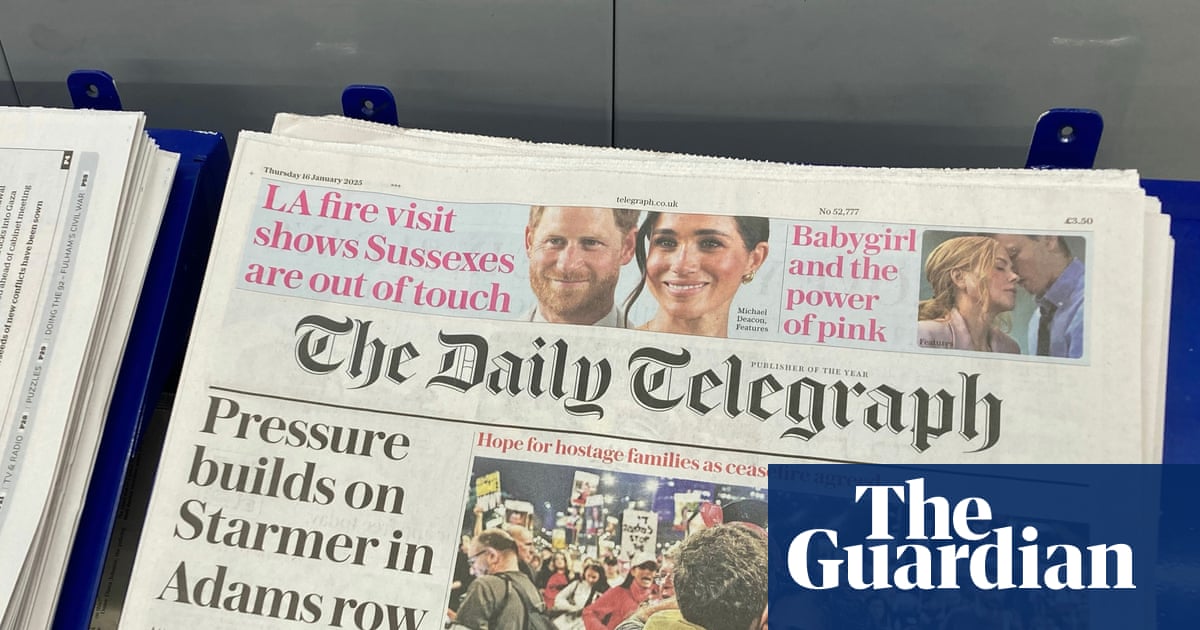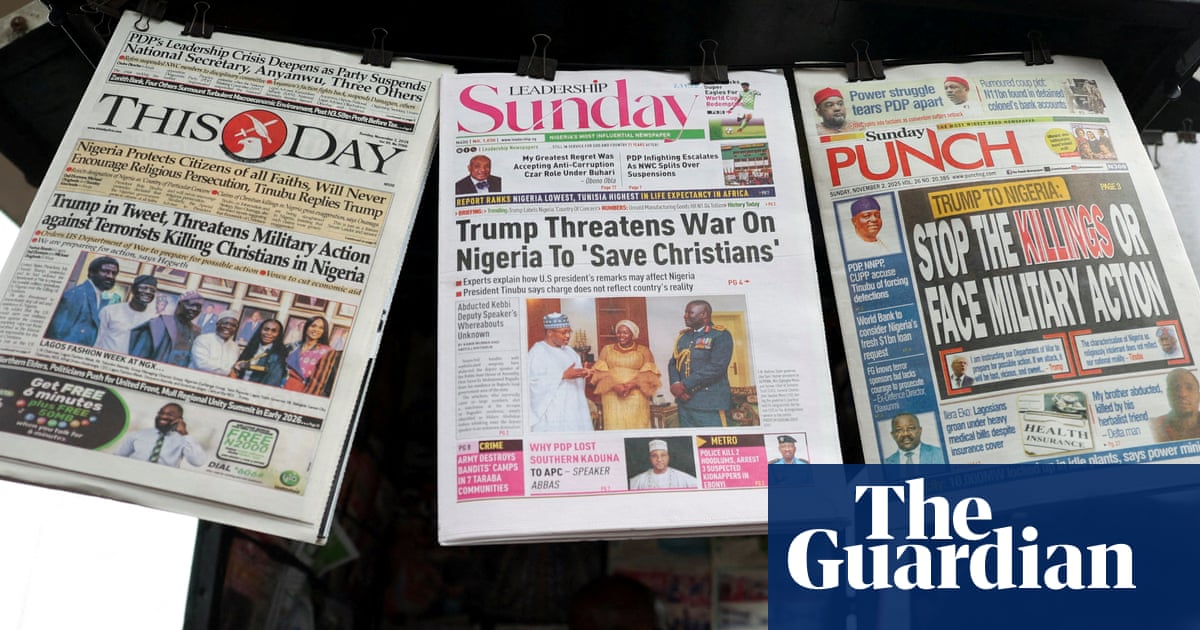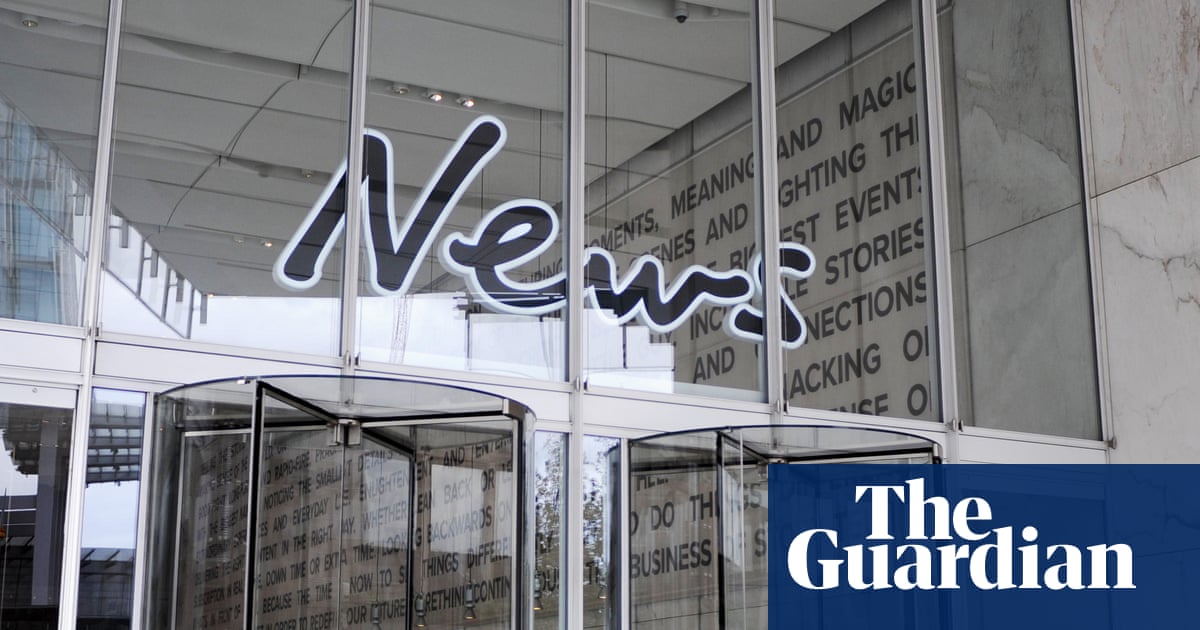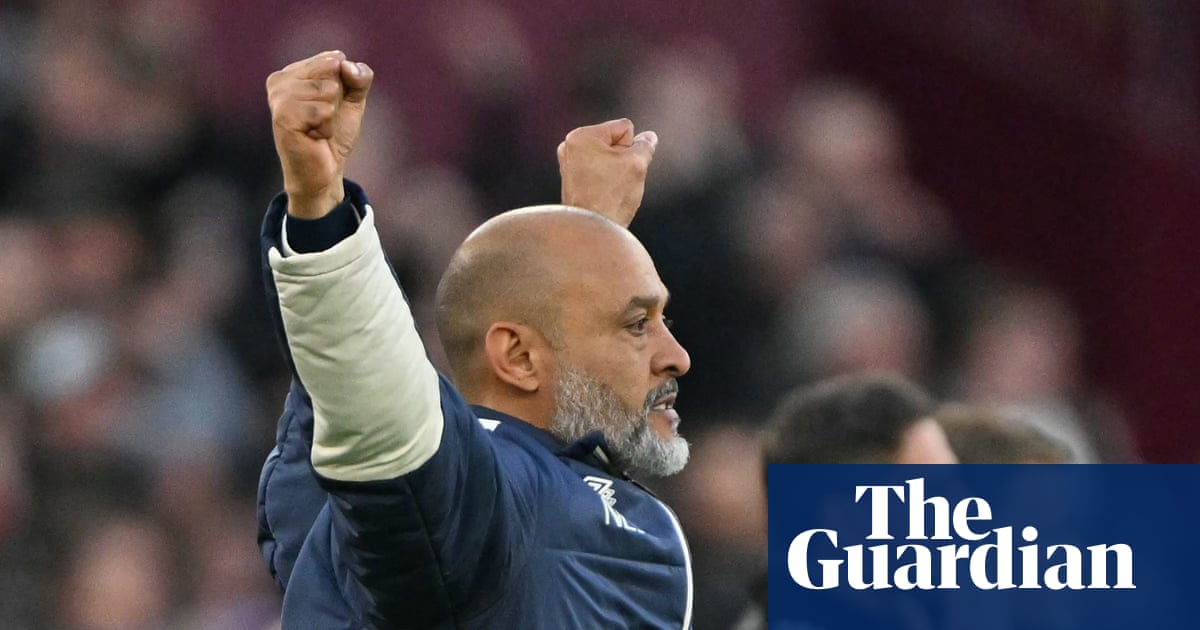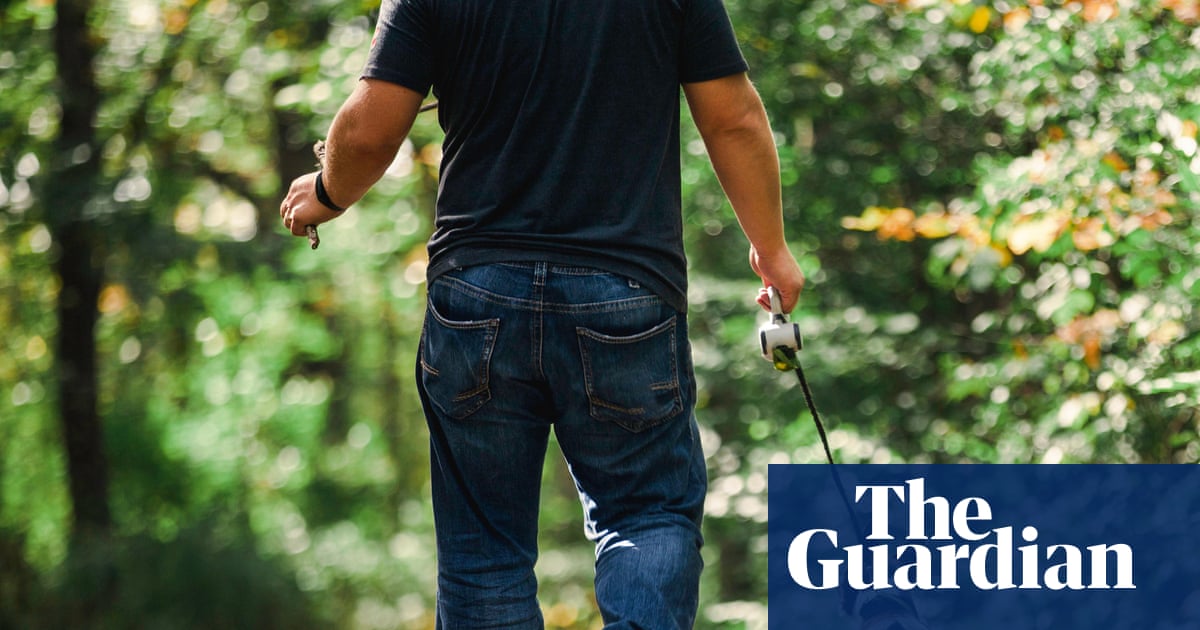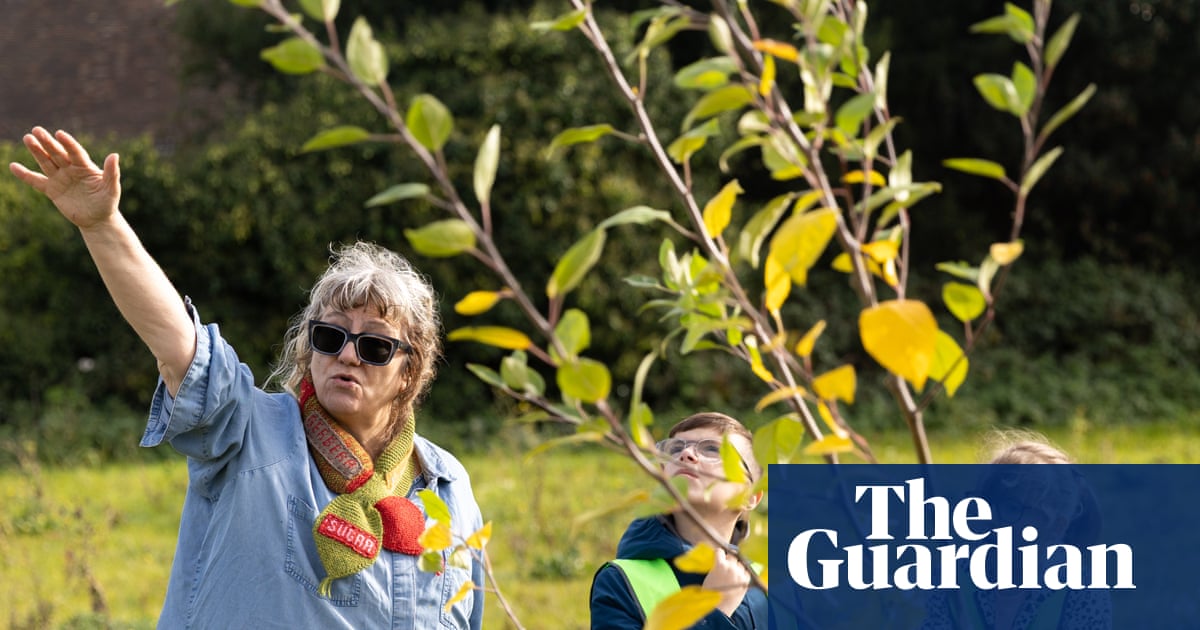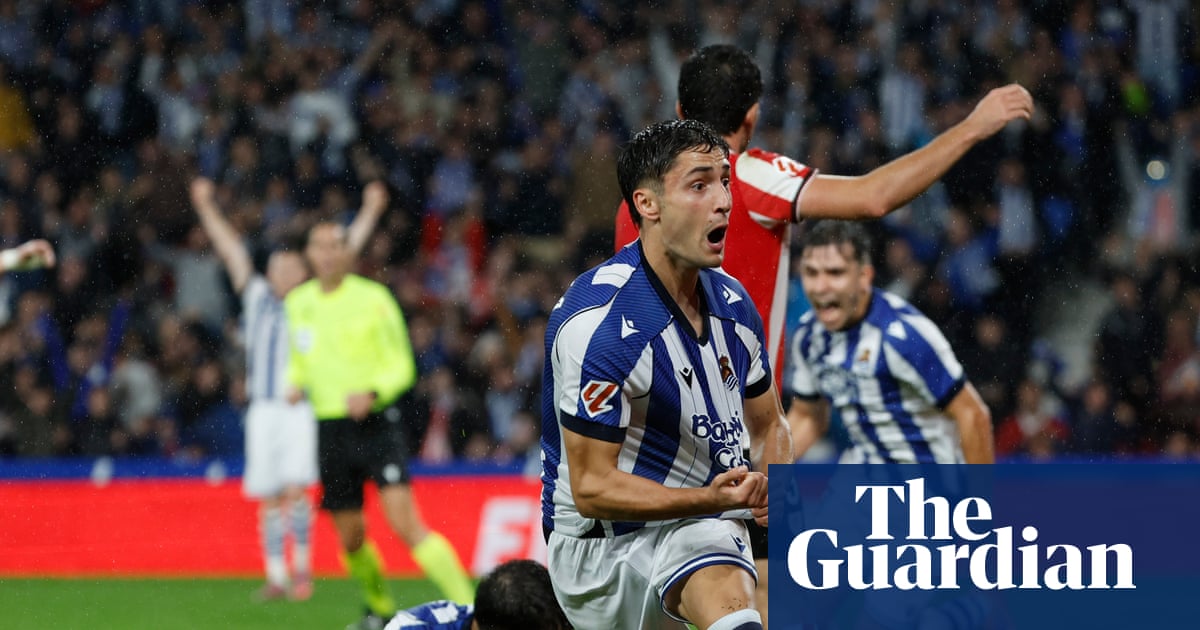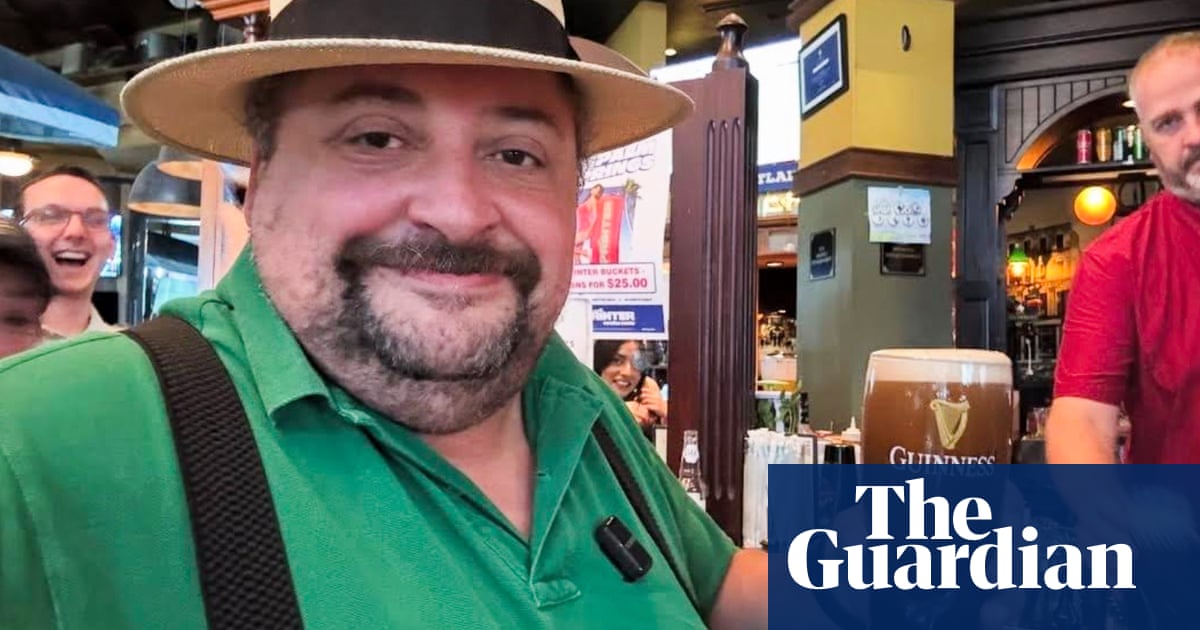At midnight, at least one night a week, Anna Lapwood ascends the stairs to the Royal Albert Hall’s organ loft and climbs on to its bench. Safe in the knowledge that the audience for that evening’s show have all dispersed, she starts playing the venue’s enormous Henry Willis organ, all 10,000 pipes of it. Often, she’s still going at five or six in the morning. “It’s the only downtime you get to practise,” she says.
Occasionally, some celebrity from an aftershow party will be lured by her playing. “It’s how I met Benedict Cumberbatch,” she says with a laugh. “And there was the time I gave Tom Cruise an impromptu organ lesson, after that live orchestral screening of Top Gun: Maverick. And Ludovico Einaudi, who came up and improvised something with me. And the band Wet Leg, who had a go on the organ. Sometimes it’s curious cleaners or security staff who’ll come up and chat and want to have a play. It’s a lovely vibe.”
Lapwood’s followers on social media – including more than 1 million on Instagram and 1.2 million on TikTok – have long wanted to witness her in this late-night environment. Now, finally, she has found a way to make it happen. Next month, Lapwood will curate the first all-night Prom in over 40 years. “It will be an explosion of energy. I’ll be conducting a choir and playing the organ, but there will also be a whole load of other artists, like the pianist Hayato Sumino, or the fantastic Norwegian ensemble Barokksolistene – people in the Arctic know about performing during the night!”
It’s tempting to picture this Prom, which will run from 11pm until 7am, as a giant chill-out room. Not at all, says Lapwood. “I hope that no one will be asleep!” she exclaims. “And I hope people won’t be dipping in and out. There will be two breaks. We’re trying to make sure that there are rest areas – not sleeping areas! – and lots of coffee and snacks. The idea is that people will settle in, stay awake and enjoy all of it.”
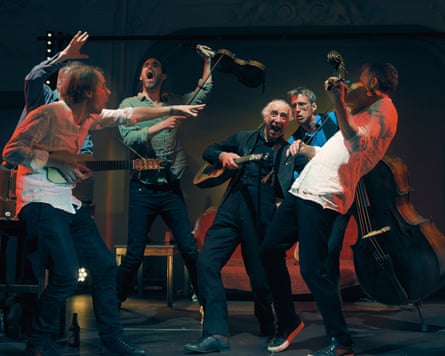
The event kicks off the next stage in Lapwood’s sensational career. Still only 29, she has become the hottest property in classical music: a media-friendly, globally popular ambassador for her instrument and the genre. We meet in the 350-year-old chapel at Pembroke College, Cambridge, designed by Christopher Wren, which has been Lapwood’s workplace since 2016 when, aged 21, she became the youngest ever director of music at an Oxbridge college. It’s where she taught, rehearsed with choirs, led evensong and supervised two organ scholars. But the role became increasingly difficult to maintain in the light of her other commitments, which is why she made the “gut-wrenching” decision to leave this summer.
“I’ve been doing admin on planes, marking homework while travelling to gigs, racing back from recording sessions to conduct choirs. And it’s difficult for me to tell my students that they need to have a healthy work/life balance when they see me operating like this.”
It leaves Lapwood free to pursue other ambitions. As well as her contract with Sony Records and her new role as associate director at the Albert Hall, she has a packed concert schedule over the next two years, including another recital at LA’s Walt Disney Concert Hall (her first was a sell-out), a collaboration with Jonny Greenwood in Manchester (another all-nighter next February) and concerts everywhere from Bristol to Budapest, Nuremberg to New York. “Venues used to want a confirmed setlist years in advance. I’ve tried to encourage more flexibility. I now just say ‘programme includes’ and list a couple of works – it’s important that I’m able to play the music that I’m currently excited about, and get a bit spontaneous.”
One noticeable feature of Lapwood’s concerts is that, unlike most conductors or soloists, she talks to her audiences. Why does she do this? “Partly because I’m stuck up in the organ loft, and I need to connect with people. Mainly, I want to break people into classical music, and it’s essential to provide some sort of context and convey my enthusiasm. But every performer does things differently. Some conductors feel it’s a distraction. It’s a personal choice.”
Last year Lapwood was at the centre of a mini furore for saying she welcomed people filming her concerts and uploading footage to social media. “Again, It has to be the choice of the performer,” she says. “Going on to the stage requires a lot of bravery, and you need to feel comfortable. Some people hate being filmed. I like it.”
That hasn’t always been the case. “There was a time when I felt that I was always having to prove myself, a constant fear I’d mess up,” she admits. “The main problem was that I was playing an entirely classical programme, the likes of Bach and Widor and Messiaen. Much as I love all those composers, I didn’t want to play just them. It’s only since I’ve started incorporating my own transcriptions of film scores into my sets that I have started to genuinely enjoy playing live.”
Soundtracks have become a crucial part of Lapwood’s repertoire. “I was always acutely aware of how soundtracks could affect your emotional state. I found myself rewinding DVDs and transcribing scores, note for note, working out why they moved me. Now I’ve started turning those transcriptions into organ arrangements. You have to follow what makes your heart sing.”
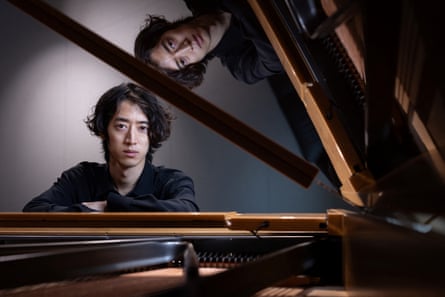
She has recorded and performed film themes by John Powell, Rachel Portman and, in particular, Hans Zimmer, and wants to do more by the likes of James Newton Howard, Harry Gregson-Williams and Nainita Desai. “It was always my ambition to write music for film. I’d love to write a soundtrack for the organ, because it’s never been done, and it’s such a versatile instrument.”
Lapwood’s most recent album, Firedove, mixes many of her enthusiasms. It opens with her arrangement of Alan Menken’s theme from Disney’s The Hunchback of Notre Dame and ends with two pieces by real-life organists at Notre Dame de Paris: a fiendish scherzo by Louis Vierne and preludes and fugues by Maurice Duruflé. There are modern minimalist pieces she has commissioned by Poppy Ackroyd, Hania Rani and Ola Gjeilo; a touch of Zimmer, a hymnal choral arrangement of a Bob Dylan song and a bombastic mashup of Robbie Williams’s Angels and Widor’s Toccata. “It sounds like I’ve arranged it thematically, but it’s literally just a load of music that I’m excited by, held together by the thread of the organ sound.”
Lapwood has no composing credits on any of her eight albums to date, something she wants to rectify. “My composing brain is slowly waking up,” she says. “I’m just getting comfortable enough to start writing for the organ. I loved composing when I was little, but then I got a low grade in a harmony and counterpoint exam and was told I couldn’t continue composition. Which is nonsense!”
Instead the young Lapwood put all her efforts into learning as many instruments as she could get her hands on. By the age of 18 she had reached grade-eight standard on the piano, violin, viola, harp and organ, and taught herself a dozen other instruments. “I’d hear my older brother playing the flute and I’d nick his instrument and his tuition book. I’d buy cheap instruments from junk shops – guitars, cornets, drum kits – and learn from beginners books. It’s like languages. The more you learn, the easier each one gets.”
So immersed was she in mastering instruments that she didn’t have much time to listen to music – something surprisingly common among musical prodigies. “Schoolfriends found it hilarious that I couldn’t tell the difference between Justin Bieber and Beyoncé,” she laughs. “It was like I lived under a rock.” She remembers sharing the musical tastes of her father, a vicar turned teacher who would listen to evangelical hymns and “quite bland popular classics” by the likes of Aled Jones and violinist Vanessa-Mae.
“It’s why I never sneer at anyone’s musical tastes,” she says. “When I started working with choirs, people were like, ‘How could you not know these big hits of the choral world?’ But every area of music has its own smash hits, and all musicians have their blindspots.”
Lapwood’s blindspots have become a running joke on the Radio 4 cross-genre music show Add to Playlist, on which she is a frequent guest. She often admits to never having heard anything by the likes of, say, Adele, Justin Timberlake, the Rolling Stones or Keith Jarrett. She confesses that, in the past, she has been guilty of being musically incurious. She even admits she has not heard any of Dudley Moore’s jazz recordings, despite being one of his successors as an organ scholar at Magdalen College, Oxford, and having her name listed beneath his on a plaque in the chapel’s organ loft.
“Sometimes, the amount of music I need to deal with just for work is exhausting,” she says. “You can’t listen to everything.” She relaxes, she says, by putting on the same Melody Gardot playlist she has listened to for years, and by watching trash TV like Australian Masterchef, or by cooking the same dishes day after day (“I’m currently in a shakshuka phase”).
“It is easy to get stuck in a rut, which is why I love being forced into learning about new areas of music.” Often this happens in public, such as when she guested on the organ with the electronica outfit Bonobo, or performed in a Ministry of Sound concert – both went viral.
“You suddenly learn about a new sound world, and appreciate different technical skills. All these musical barriers – barriers that I had enforced on myself – disappear. It’s like, for some reason, my parents never cooked bacon. I went through my childhood thinking I’d hate bacon. Then, at university, I had a bacon sandwich, which was a eureka moment! It’s why I’m increasingly open to all types of music.”

 3 months ago
95
3 months ago
95


